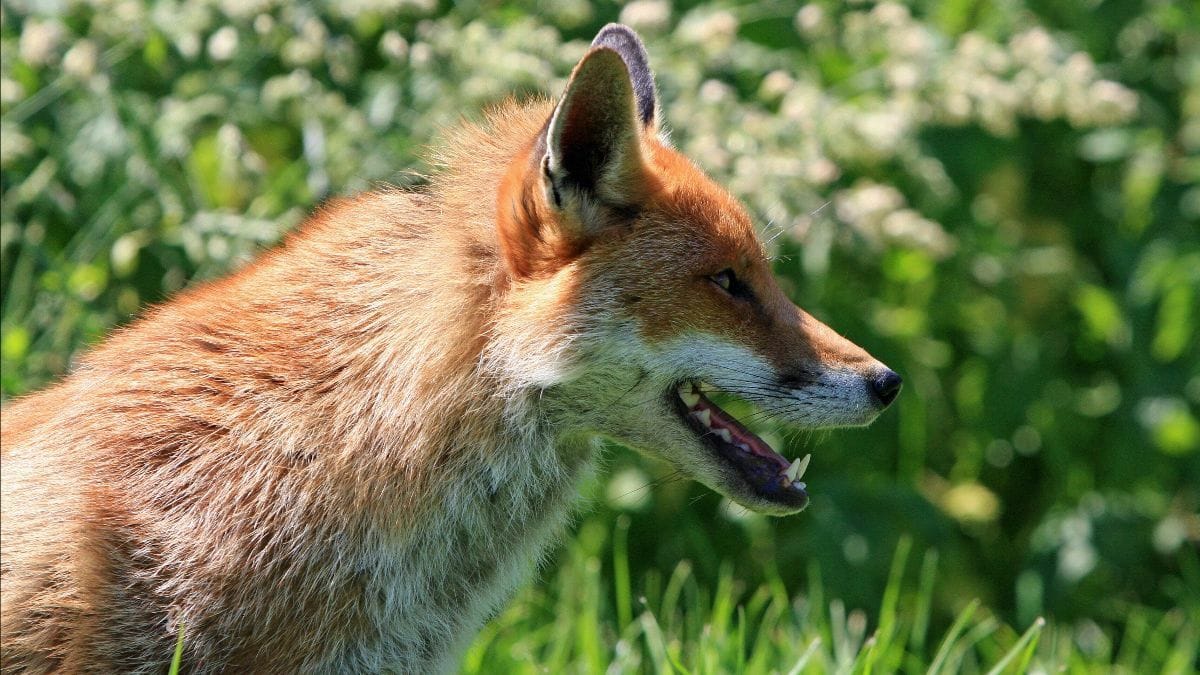
Hi ,
We hope you've been spending your Sunday morning doing whatever you love. For us it was a sleep in, a strong cup of coffee and watching the F1 season resume at the Belgian Grand Prix.
It's a quick edition of
Weekend Rounds
today as the news from around the world of vet med has been limited this week. Don't blame us... we don't make the news, we just package it up with a neat little bow and deliver it you you every weekend.
A quick read on a few interesting topics, and then we'll get you back to your Sunday:
🦝 We're talking rabies
💰 Is a new AI partnership good for clinicians?
🩺 New episode of qrsTV
🚀 Quick hits

An article from National Geographic caught our eye this week on how rabies has remained endemic in wild mammals around the world. Despite many countries having high vaccination rates for rabies in dogs, the virus continues to proliferate in bats, foxes, raccoons and more. Here's what we know:
Rabies lyssavirus is an RNA virus that specializes in attacking the body’s central nervous system. Once symptoms onset, death is a certainty
Despite a vaccine being developed in 1885, rabies kills around 60,000 people every year (mostly in rural Africa and Asia)
The WHO and its global partners have set a goal to eliminate human rabies deaths by 2030 through education and vaccination campaigns to reach herd immunity among the local host populations which is typically domestic dogs
Meanwhile, countries like Canada are taking matters into their own hands by banning the importation of dogs from countries deemed 'high risk' for rabies. Some are saying the ban is
, while others say it's a
.
What do you think?
IVC partners with AI-Powered Radiology Diagnostic Tool
SignalPET, a company dedicated to Artificial Intelligence in veterinary radiology, has announced that they have partnered with IVC Evidensia to provide AI generated radiology readings. They claim that using AI will cut diagnostic time "from days to minutes" by not having to send the results to a radiology specialist to analyze. The roll out will cover hundreds of clinics in the UK over 2022 and 2023. Our take: It is easy to get caught up in the idea that AI can revolutionize the way vets are able to diagnose and treat. However, Obi co-founder and board certified radiologist Dr. Ryan Appleby, has some concerns. AI has great potential but almost no scientific support that it aids diagnosis or improves clinical outcome at this time. Commercial AI providers have brought a diagnostic product to market without peer reviewed studies on their accuracy, sensitivity or specificity. There are many steps needed before AI a should be adopted clinically and veterinarians should be cautious of claims which lack scientific basis. In addition to a lack of transparency on how these models were developed, as well as their performance metrics. There are ethical and procedural questions on their use that veterinarians have yet to grapple with. For example: Who is to blame when the AI returns an incorrect diagnosis? And how often does that happen? Who owns the data associated with these products? Should costs associated with such tests, which do not have any peer reviewed studies showing they improve diagnosis or clinical outcomes, be passed on to clients?
If you're interested in learning more about AI tools, Dr. Appleby has a
on evaluating AI tools and recently joined the
to speak about AI in the profession at large. We encourage you to think critically about where these tools can be additive to your practice, and where there may be ethical considerations. If you are using AI products, we would love to hear about your experience. Just reply to this email.
qrsTV: Arrhythmic Collapsing Lab
Dr. Lynne O’Sullivan DVM DACVIM-Cardiology, Professor of Cardiology at the Atlantic Veterinary College returns with another free episode of qrsTV on Obi! This week, we're looking at an arrhythmic collapse in a Labrador.
Check it out, along with all
to master your ECG interpretation!
Here are some stories we're following this week from around the veterinary world and animal kingdom:New AVMA officer dedicated to providing opportunities for all [AVMA]In Scotland, a bird flu crisis threatens thousands of seabirds [National Geographic]Reshaping the veterinary industry with a people-centric approach [DVM360]At these veterinary schools, women leaders are tackling the challenges of the profession [BizJournals]VetStrategy pulls back on some vet-clinic purchases as market cools [Globe and Mail]
Help us improve Weekend Rounds by letting us know if you enjoyed this newsletter:
Share Weekend Rounds:



